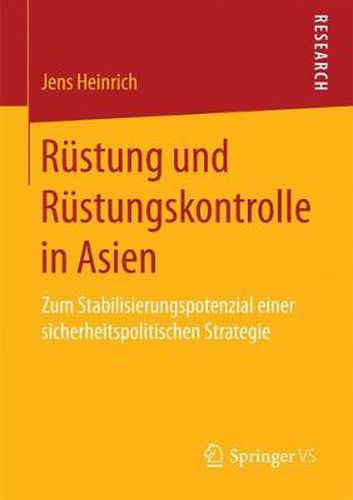Readings Newsletter
Become a Readings Member to make your shopping experience even easier.
Sign in or sign up for free!
You’re not far away from qualifying for FREE standard shipping within Australia
You’ve qualified for FREE standard shipping within Australia
The cart is loading…






This title is printed to order. This book may have been self-published. If so, we cannot guarantee the quality of the content. In the main most books will have gone through the editing process however some may not. We therefore suggest that you be aware of this before ordering this book. If in doubt check either the author or publisher’s details as we are unable to accept any returns unless they are faulty. Please contact us if you have any questions.
Jens Heinrich untersucht die informellen Rustungskontrollansatze aus den 1960er und 1980er Jahren und stellt diese erstmals analytisch in den Kontext asiatischer Atommachte im 21. Jahrhundert. Seine Forschung erweitert den Blickwinkel auf Rustungskontrolle und zeigt, dass informelle und nicht-vertragliche Instrumente eine Reihe von Spielraumen, aber auch Grenzen in den konflikttrachtigen Beziehungen der drei Atommachte China, Indien und Pakistan haben. Im Fokus der Studie stehen neben wichtigen Vertragswerken auch die Kernwaffenpolitik und die Atomwaffenarsenale dieser Lander.
$9.00 standard shipping within Australia
FREE standard shipping within Australia for orders over $100.00
Express & International shipping calculated at checkout
This title is printed to order. This book may have been self-published. If so, we cannot guarantee the quality of the content. In the main most books will have gone through the editing process however some may not. We therefore suggest that you be aware of this before ordering this book. If in doubt check either the author or publisher’s details as we are unable to accept any returns unless they are faulty. Please contact us if you have any questions.
Jens Heinrich untersucht die informellen Rustungskontrollansatze aus den 1960er und 1980er Jahren und stellt diese erstmals analytisch in den Kontext asiatischer Atommachte im 21. Jahrhundert. Seine Forschung erweitert den Blickwinkel auf Rustungskontrolle und zeigt, dass informelle und nicht-vertragliche Instrumente eine Reihe von Spielraumen, aber auch Grenzen in den konflikttrachtigen Beziehungen der drei Atommachte China, Indien und Pakistan haben. Im Fokus der Studie stehen neben wichtigen Vertragswerken auch die Kernwaffenpolitik und die Atomwaffenarsenale dieser Lander.